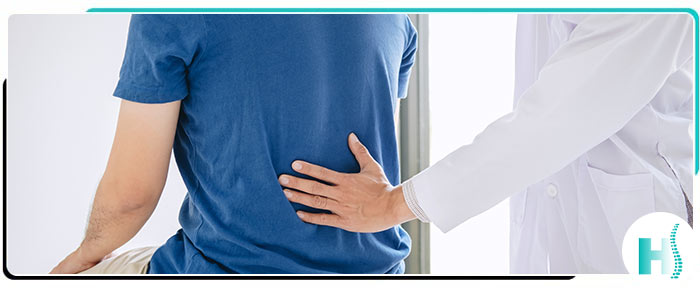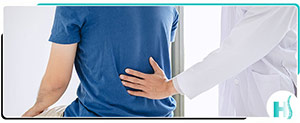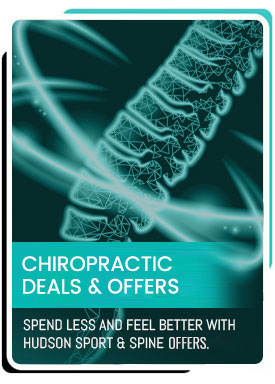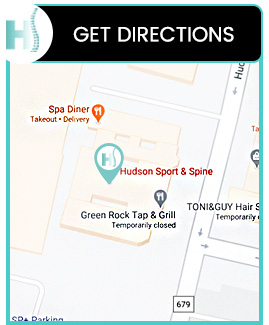Slipped Disc Treatment Specialist in Hoboken, NJ
A slipped disc can go unnoticed, or it can be more severe. Some people have no symptoms, but for others, it can cause severe back pain, numbness and tingling, and muscular weakness. If you are experiencing any of these symptoms, come to Hudson Sport & Spine and see Dr. Todd Givens, DC. For more information, contact us today or schedule an online appointment. We are conveniently located at 70 Hudson St Suite 2B, Hoboken, NJ 07030.




Table of Contents:
What causes a slipped disc?
Can a slipped disc heal on its own?
Is a slipped disc very serious?
How do you fix a slipped disc?
Slipped discs, also known as herniated discs, can be caused by a variety of factors, including age-related wear and tear, known as disc degeneration. In addition, twisting suddenly or moving awkwardly can cause a disc to slip. Carrying extra weight or lifting incorrectly can also cause this problem, as these actions add pressure on the discs in your lower back. Extra strain, especially when combined with risky moves like improper lifting or sudden twists, significantly increases your chances of experiencing a slipped disc.
To keep your back healthy, it’s urged that you use your legs when lifting heavy items, keep your weight in check, and strengthen your core muscles to support your spine. These habits protect your back and reduce the risk of experiencing pain and other symptoms caused by a herniated disc.
Yes, a slipped disc may heal on its own. Some people find that the pain associated with a herniated disc diminishes within a period of six weeks without treatment. However, while the pain may improve, it’s essential to consult a healthcare professional to manage discomfort effectively and ensure that there are no serious underlying issues. In addition, it’s important to maintain good posture and decrease stress on the herniated disc to support healing and minimize the risk of complications or future incidents.
A slipped disc can range from hardly noticeable to serious. Some people do not experience any symptoms, but for others, the condition can result in severe back pain, numbness and tingling, and muscle weakness. One of the most common concerns with a slipped disc, especially in the lower back, is that it can press on the sciatic nerve. This can cause sharp, shooting pain that travels from the back down to one leg, which is known as sciatica.
Essentially, the seriousness of a slipped disc depends on the extent and location of the herniation and how much it compresses the spinal nerves. In the most severe cases, this condition can limit mobility and lead to chronic pain. Healthcare providers can offer a variety of interventions to address a herniated disc, such as physical therapy, medications, or, in some cases, surgery.
It’s important to discuss your symptoms early with a healthcare professional so they can help you address your slipped disc before it becomes serious. Our experts can help you manage your discomfort and other symptoms, as well as help you prevent the risk of further injury or complications like sciatica.
The primary goal of slipped disc treatment is to alleviate pain, promote healing, and restore normal function. Healthcare professionals use several approaches to support patients with disc herniation, such as:
● Medication – In some cases, over-the-counter pain relievers such as ibuprofen can adequately reduce inflammation and pain. In more severe cases, doctors usually prescribe stronger pain relievers, muscle relaxants to alleviate muscle spasms, or neuropathic drugs like gabapentin or pregabalin.
● Physical therapy – This approach is used to stabilize and strengthen the spine, improve flexibility, and reduce the chances of further injury. Therapists may use techniques such as manual therapy, heat or cold therapy, ultrasound, electrical stimulation, and targeted exercises to improve mobility and decrease symptoms.
● Lifestyle adjustments – The healthcare professional will advise you on how to take care of yourself to minimize symptoms and promote prevention, such as resuming activity slowly, using heat and cold packs, and avoiding lifting heavy objects.
● Surgery – In cases where conservative treatments do not provide relief, and the pain continues to be debilitating, surgery may be recommended as a last resort. Some of the surgical procedures that can be used to address disc herniation include a microdiscectomy, where the portion of the disc that is pressing on the nerve is removed, and spinal fusion, where two or more vertebrae are fused.
At Hudson Sport & Spine, Dr. Todd Givens, DC, provides effective, non-surgical treatment options for patients suffering from slipped discs. A slipped or herniated disc can cause intense back or neck pain, numbness, tingling, and even muscle weakness if it presses on nearby nerves. Dr. Givens begins with a detailed evaluation to determine the disc’s position and how it’s affecting your body.
Treatment at Hudson Sport & Spine may include spinal decompression therapy, gentle chiropractic adjustments, targeted exercises, and soft tissue work to relieve pressure, reduce inflammation, and support healing. Dr. Givens personalizes every care plan to match your condition, pain level, and recovery goals. By restoring proper alignment and function, he helps you avoid surgery and get back to your normal activities. At Hudson Sport & Spine, the focus is on long-term relief, improved mobility, and helping you feel stronger every step of the way. For more information, contact us today or schedule an online appointment. We are conveniently located at 70 Hudson St Suite 2B, Hoboken, NJ 07030. We serve patients from Hoboken NJ, Jersey City NJ, Weehawken NJ, West New York NJ, Guttenberg NJ, Secaucus NJ, Harrison NJ, Kearny NJ, Newark NJ, Belleville NJ, North Bergen NJ and Lyndhurst NJ.
Check Out Our 5 Star Reviews









